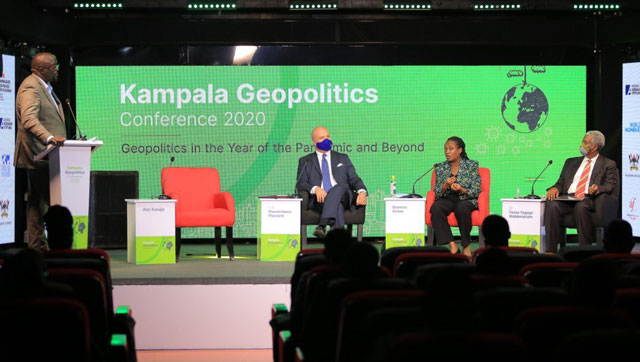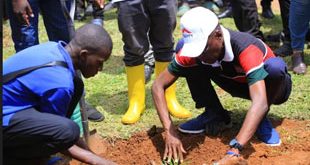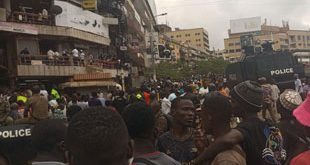
Kampala, Uganda | Patricia Akankwatsa | Konrad-Adenauer-Stiftung (KAS), Makerere University, UN Women, Alliance Française Kampala, and the Institut de Relations Internationales et Stratégiques (IRIS) are delighted to announce that the 5th edition of the Kampala Geopolitics Conference will commence next week on 15th – 16th November at the Makerere University Auditorium.
The Kampala Geopolitics Conference (KGC) is a two-day academic public event discussing current geopolitical questions and trends.
It is inspired by the flagship event of the “Geopolitics of Nantes” in France. The KGC is a high- level conference offering an interactive platform for dialogue and free exchange on contemporary, regional and international debates to move global debates to an African stage.
Experts from Uganda and the African continent will be joined by international researchers to engage in participatory and documented debates on global topics.
This year’s event will host 14 roundtables on a variety of topics relating to global challenges, security, regional trends, sustainable development, sport, culture and society.
This year’s edition of the Kampala Geopolitics will be centred on the theme; “Bringing International Debates to Africa.”
The world is at the cusp of a new era, how does Africa configure its globalization agenda and project its influence in critical decision-making? Who are the new actors on the geopolitics scene? What are the geopolitical implications for Africa and the rest of the world as the polarity of power shifts strategically?
What does a new rules-based order mean for the global village and particularly, for Africa? The COVID-19 pandemic demonstrated many cracks in global multilateralism. Vaccine diplomacy played out as many developing countries especially those in Africa were left in the cold with limited access to COVID-19 vaccines.
The COVID-19 pandemic is restructuring relationships between African governments and external partners, creating an opportunity for a hard reset and a re-prioritization of strategic issues.
The Geopolitics panel on global health partnerships will seek to address this. Regional governments and the public have been increasingly forthright with their frustrations with foreign partners—criticizing vaccine nationalism, racism abroad, and the asymmetry of bilateral ties. At the same time, there is often tension between what African governments want, what the African public expects, and what external partners choose to prioritize.
Today, the African region continues to face serious challenges that temper many countries’ ability to project power. Relatively low economic recovery, civil wars, and climate change continue to force large numbers of people to flee their homes as refugees and migrants. Whether sub-Saharan countries can cooperate to address these challenges through institutions such as the African Union will largely determine the region’s future.
As the world emerges from the pandemic, we are faced with new challenges such as energy insecurity exercabated by external factors such as the Russia-Ukraine Invasion among others.
We are starting to witness a new dawn, is there a renewed scramble and partition for Africa as the West seeks to galvanize existing partnerships or win over new allies?
The conference will also include a series of Twitter spaces, an innovative format (introduced last year) that fosters local and global engagement with the audience as the KGC aims to reach the general public with a special focus on students, academia, representatives from civil society and media, political decision-makers and the diplomatic community. Cultural activities, including a photo exhibition, will also punctuate the event.
 The Independent Uganda: You get the Truth we Pay the Price
The Independent Uganda: You get the Truth we Pay the Price


